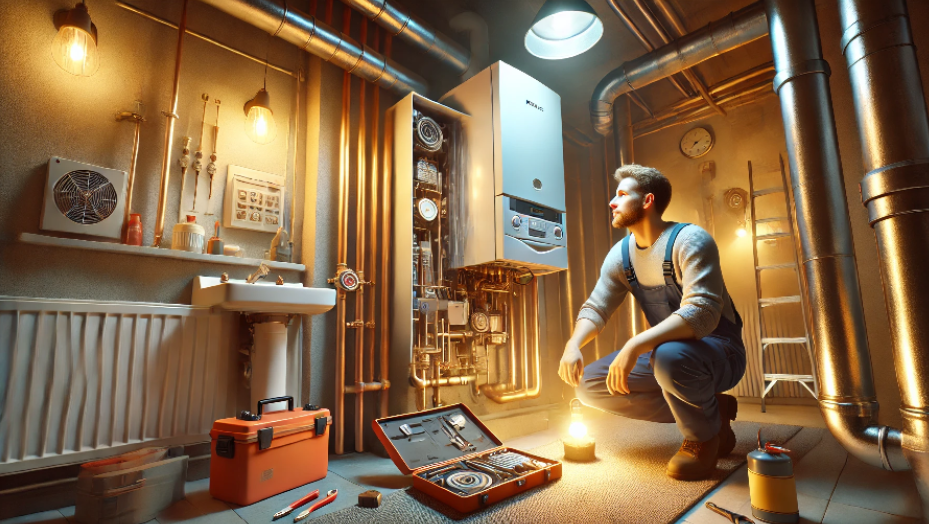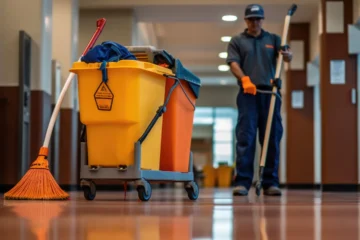Taking care of your boiler doesn’t have to be complicated, but it’s important to know what to watch for and how to deal with problems before they get worse. Boiler maintenance isn’t just about preventing breakdowns; it’s about keeping things running efficiently and saving money on energy bills. Here’s a rundown of the main issues that can pop up and how you can stay ahead of them.
What Boiler Maintenance Really Means
Boiler maintenance is all about keeping the system in good working order, not just fixing things when they go wrong. This involves regular checks, a bit of cleaning, and knowing what signs to look out for. By staying on top of it, you’ll avoid most common problems, improve energy efficiency, and keep the system safe. Let’s dig into the details.
1. The Low-Pressure Problem
If you notice your radiators aren’t as hot as they used to be, low pressure could be the culprit. Boilers need the right pressure to push hot water through the system, and if the pressure gauge shows it’s below the 1-2 bar range, it might be time to take action. Often, low pressure happens because of a leak or air trapped in the radiators.
Fixing it can be as easy as topping up the system using the filling loop. But if the pressure keeps dropping, it’s a sign of a deeper issue that needs a professional to check for leaks or faulty valves. Don’t just ignore it—low pressure can make your boiler work harder than it should, leading to other issues down the line.
2. Air in the Radiators? Time to Bleed
When some radiators are warm at the bottom but cold at the top, trapped air could be the problem. Bleeding your radiators is an easy fix that lets the air escape and restores the heating system to full efficiency. Just turn off the heating, grab a radiator key, and twist the bleed valve until you hear the hiss of air. Once water starts to trickle out, close the valve. It’s a small job, but it can make a big difference in how well your heating works.
3. Keeping It Clean: The Boiler and Flue
Dust and grime can build up over time, affecting how well your boiler runs. If the boiler and flue get clogged with dirt, it not only reduces efficiency but can also pose safety risks like carbon monoxide buildup. While some cleaning can be done yourself, such as keeping the area around the boiler dust-free, deep cleaning should be left to a professional who can safely access the inside parts. This regular upkeep helps your boiler last longer and work better.
4. Don’t Ignore Small Leaks
Even a small leak can turn into a big problem if left unchecked. Drips around the boiler or damp spots near pipes could mean a valve isn’t sealed properly, a pipe has corroded, or there’s a worn-out seal. If you spot any moisture, don’t wait—it’s time to call in an expert. Leaks not only reduce efficiency by causing pressure drops but can also lead to water damage in your home. Addressing them quickly keeps things safe and saves you from bigger repair bills.
5. Upgrade Your Thermostat
If your heating is acting weird or your energy bills are creeping up, it might not be the boiler at fault—it could be your thermostat. Older thermostats can be less accurate, which means the boiler might be running more than it needs to. Investing in a modern smart thermostat can help control heating more precisely and cut down on costs by learning your heating habits and adjusting automatically.
6. Don’t Skip Annual Servicing
You wouldn’t drive a car for years without getting it serviced, so don’t do that to your boiler either. An annual check-up from a qualified heating engineer will catch issues you might not even notice. They’ll clean the internal parts, check the gas pressure, and make sure everything is operating safely. Plus, keeping up with regular servicing usually keeps your warranty valid—just in case something does go wrong.
7. Winter-Proofing: Insulating Pipes
Cold weather can freeze the pipes connected to your boiler, especially the condensate pipe, which can cause the whole system to shut down. Pipe insulation is a quick and inexpensive fix that keeps things from freezing up. You can also keep the heating on low during especially cold spells to avoid any frozen surprises.
8. Make Sure the Pilot Light is Steady
For older boilers that still use a pilot light, it’s important to check that the flame is steady and blue. If it’s flickering or turning yellow, there could be an issue with gas flow or combustion. Newer boilers with electronic ignition can also run into problems, so regular checks are still essential. If your pilot light keeps going out, it’s probably time to get it checked out by a professional.
The Bottom Line
Boiler maintenance isn’t just about avoiding problems—it’s about keeping your home warm and your energy bills in check. With a few simple steps, like topping up the pressure, bleeding radiators, and getting an annual service, you can keep your boiler running smoothly and extend its lifespan. Don’t wait for a breakdown; a little attention now will save you a lot of hassle later.


